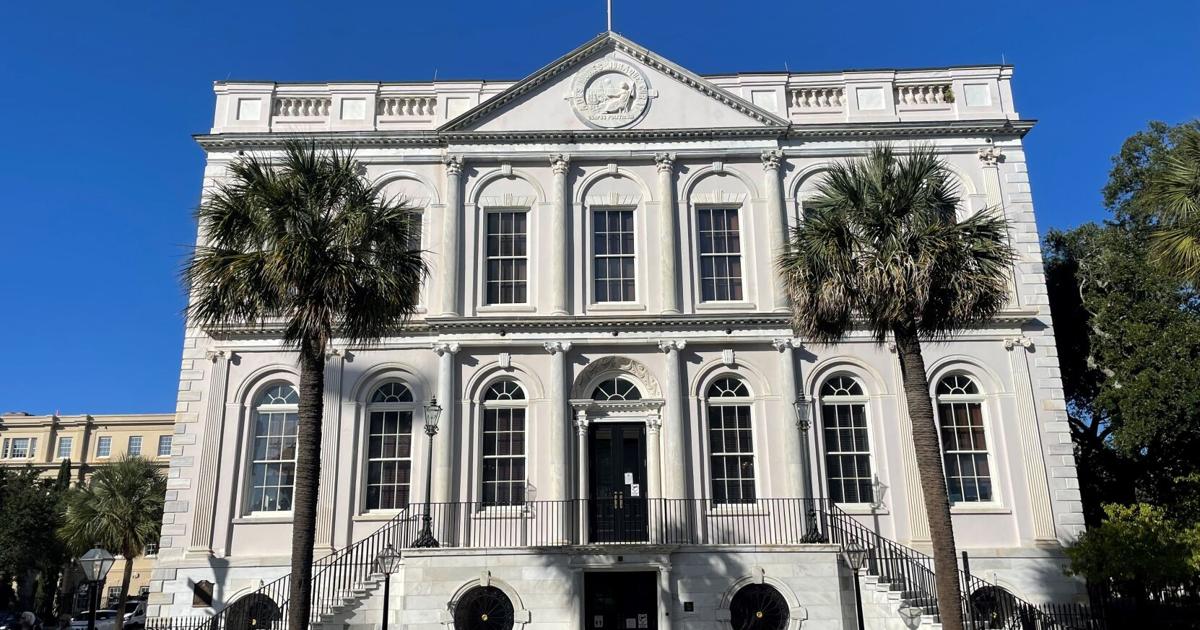Copyright Charleston Post and Courier

CHARLESTON — Half of City Council’s 12 district seats are up for election on Nov. 4. Only one incumbent is running unopposed and another announced she would not seek another term, which means there's a chance of some turnover inside City Hall. These contests are nonpartisan. During a candidate forum earlier this month hosted by The League of Women Voters of the Charleston Area and The Charleston Chapter of The LINKS, Inc., most of the candidates shared their views on some of the biggest issues facing the city: traffic, affordable housing and development. Three races we have a close eye on District 4 Nonprofit executive Aaron Polkey and perennial candidate Luqman S. Rasheed are vying to upset Councilman Robert M. Mitchell, the longest-serving member of council, for this seat located on the Charleston peninsula that encompasses the Neck Area and most of the East Side. Rasheed has not filed any financial reports for his campaign with the state Ethics Commission. An initial report is required when a candidate raises or spends $500 during the course of their campaign. A quarterly report disclosing a candidate’s donors and expenses was due Oct. 10. Polkey has amassed nearly $85,000 in campaign contributions — the most of any candidate in the city, according to financial reports available online. Mitchell, by comparison, has only reported raising $3,400. Polkey, an attorney and president and CEO of Palmetto Project, applauded Mitchell for his years of service, but said it’s time to pass the baton to someone with fresh ideas and perspectives. How policies might affect his mother, a longtime school teacher who lives in Wagner Terrace, are at the forefront of his campaign “She's been in the same house since 1973,” Polkey said during the forum earlier this month. “How's she going to be able to afford to fix her house with increased building costs, with increased permitting costs? How does she age in place? And how does she pass that asset down to the next generation?” Mitchell, who has served on council since 1998, leaned on his experience saying there were too many fires burning in the city for him to step aside. Continued development in the district has pushed older, Black residents off the peninsula, Mitchell said, but he’s worked to mitigate that with affordable housing projects like the James Lewis Apartments and Archer School redevelopment that each opened last year. “Anyone coming in there behind me, whoever it may be, they would not know what's going on,” he said. Rasheed appeared skeptical of projects like the Archer School, which offers mixed-income apartments for seniors, asking who really benefits from them: developers or long-time residents. “The city did nothing to help,” Rasheed said in terms of gentrification. District 6 Ben D'Allesandro, owner and manager of D’Allesandro’s Pizza, is running against Councilman William Dudley Gregorie, another longtime incumbent, for this district that covers the West Side of the peninsula from Calhoun to Mount Pleasant streets. D’Allesandro has drummed up support from fellow restaurateurs and business owners, out-fundraising Gregorie by more than $40,000, according to campaign reports. Gregorie hasn’t reported any contributions, though he’s filed all require reports. “At a time when the world has gotten more expensive, divisive and lonely, it is important for the city to offer more free outlets for people to socialize,” D’Allesandro said. “Maybe that's through more park amenities, safer streets to play in, free events, or more senior events to be held in the public housing.” Gregorie, like Mitchell, is leaning on his record when it comes to addressing flooding that has plague the district for decades. “Our mantra is ‘It's the water stupid,’ ” Gregorie said. “We're building a $200 million pump station that will help with the water in about 20 percent of our neighborhoods, as well as help with commerce.” His focus has turned to Hagood Avenue and Fishburne Street, an intersection that floods even on sunny days. District 12 Event planner and campaign strategist Annette Begner, marketing and media professional Deanna Miller, and sustainability nonprofit CEO Leslie Skardon are vying for this seat representing James Island. Councilwoman Caroline Parker announced she would not seek reelection, but the slate of all-female challengers ensures that at least one woman will remain on council come next year. Parker has endorsed Begner. While these contests are nonpartisan, Begner, a proud Republican, is the only candidate who has openly affiliated with a political party. She found herself in hot water after she posted online regarding comments made at a meeting at James Island Town Hall that did not match the recording of what transpired there. She did not attend the candidate forum earlier this month, but told The Post and Courier previously that she “will work with everyone — City of Charleston residents, Town of James Island residents, and anyone else — willing to help our community on infrastructure improvements, public safety enhancements, support of local businesses, and smart and strategic growth. “ Miller said her longevity on James Island is what sets her apart from her opponents. “I've been here through a pandemic. I've been here through a recession. And I've been here through this incremental growth,” she said during the forum. “These are experiences that you can't learn. These are experiences that you have to live, and my care and concern for Charleston isn't just limited to James Island. I shop in West Ashley. I see concerts on Daniel Island. And I dine on the peninsula and unfortunately, sit in traffic on Johns Island.” Skardon is the front runner based on campaign contributions. She’s raised nearly $77,000 in campaign contributions, compared to Begner’s nearly $14,000 and Miller’s roughly $9,000, according to financial reports. While she’s never held elected office before, Skardon listed her record of civic engagement including “as a Charleston Parks and Recreation commissioner, as a commissioner on the city’s Committee on Women, as a founder of an educational organization to bring children together across our county, and as someone who has worked across every level of government on flooding.” It’s with this experience she hopes could reinvent plans like “Rethink Folly.” “That was created almost 10 years ago, but we have not seen results on that plan,” she said at the forum. “That plan lays out different districts where we can look at building appropriately and responsibly to ensure that we have multimodal infrastructure, livability plans and have that affordable and attainable housing that we need. This is a big issue and one where we need everyone to come to the table and look at results that have worked and implement them here.” Other races that will appear on ballots in the city District 2 Political newcomer Abraham D. Champagne faces off against incumbent Councilman Kevin Shealy for this West Ashley district. As an educator, community advocate, and urban planner, Champagne said he’s seen firsthand the impacts of decision makers — “good and bad,” he said. “I work in rapidly growing communities across the region helping with housing and transportation to create more livable communities,” he said during the forum earlier this month, adding that he hopes to bring his expertise to relieve some West Ashley’s most congested corridors. Shealy, an insurance agent, seeks his third term standing on his record of addressing flooding in the Church Creek Basin, especially around Lake Dotterer. “The lake has flooded multiple times causing damage to property in several of these neighborhoods,” he said in a campaign video he posted to his Facebook page. Shealy couldn’t attend the forum citing a family commitment. “Because of my efforts, Lake Dotterer has become a priority.” District 8 Councilman Mike Seekings is running unopposed in this district that stretches along the lower peninsula and across the Cooper River to the eastern edge of Daniel Island. Despite the lack of opposition, Seekings raised the third highest total of any candidate topping $69,000, according to campaign reports filed with the state’s Ethics Commission. Notable contributors included Ben Navarro, his wife, Kelly, and three of their company’s that each donated $1,000 to Seeking’s already secure reelection. The hospitality investor and philanthropist is under contract to purchase and redevelop Union Pier, a nearly 70-acre port terminal in the heart of Seeking’s downtown district. District 10 Civil engineer William Connor is challenging incumbent Councilman Stephen Bowden for this seat that represents outer West Ashley, mostly west of Bees Ferry Road. Traffic and storm water mitigation were among Connor’s biggest priorities. He said his background could help find solutions. “I've been sitting on the sidelines for a long time watching stuff get done wrong,” Connor said at the forum. “And I finally decided I needed to get involved and maybe I can help fix some of that stuff.” Connor has not yet filed any financial reports for his campaign with the state Ethic’s Commission. Bowden, an attorney, seeks a second term in hopes of passing down “the best version of this city” to his two young children. He said he wants to continue pushing for denser development away from the district that is already suffering from congestion due to rapid growth. “I feel it every day. Traffic and congestion issues are robbing me of time at work, time with my family, time to be a better city councilman,” he said. “Frankly, the city is not ever going to have the money to fix all these problems on our own. The tool we have is planning, and we have got to revisit the idea of a comprehensive zoning reform that that orients density where the infrastructure can handle it.“



